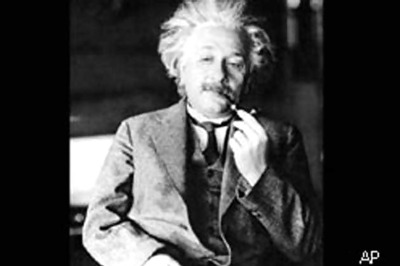
views
The BJP Yuva Morcha's decision to prevent the screening of Fanaa or any movie starring Aamir Khan in Gujarat is a comment on the unedifying level of political discourse and the inflammatory realities in the state. Ostensibly, the cinema owners in Gujarat have declined to screen Fanaa voluntarily. However, the lurking politics of intimidation guiding their stance is obvious. As this ban seems to have the tacit support of the state's governing dispensation, it also invites doubts as to the observance of constitutional and democratic values in Gujarat.
Incensed by Aamir Khan's remarks on the Narmada dam issue, the BJP Yuva Morcha asserts the ban protects the interests of the Gujarati people. So you have Amit Thaker, National Secretary, BJP Yuva Morcha self-righteously proclaiming, "For us, banning the film is a way of telling the world that we will not let anybody talk or act against the state's development."
In this baleful rhetorical exercise, it appears of little consequence to the proponents of the ban that the actor isn't against the dam per se and has voiced a concern for the rehabilitation of those affected by it. A concern for the rehabilitation of those potentially displaced by the dam is shared by the Supreme Court dicta too. To interpret this as an expression of anti-Gujarati sentiment indicates a feeble acquaintance with reason and common sense. More seriously, when the articulation of an individual's opinion results in the vilification and targeting of that individual by the gargantuan machinery of the government, it suggests a dangerous contraction of the democratic traditions of liberty and free speech.
The Indian Constitution carefully enshrines provisions to protect an individual's rights from being traduced by an abusive or an arbitrary government. Article 19 of the Constitution inter alia ensures that citizens have a fundamental right to freedom of speech and expression. It imposes a positive obligation on a government to protect its citizens' rights. The grounds for restrictions on the enjoyment of freedom of expression are quite limited - for instance, morality or incitement to an offence - and are interpreted narrowly. Further, the cinema owners too have a fundamental right to carry on with their trade. By "voluntarily" not screening the movie, they suffer a loss of future revenues that the movie would have generated.
The government of Gujarat is under an obligation to ensure that the screening of Fanaa is not prohibited. Looking askance would amount to a dereliction of its constitutional duty. The central BJP leadership should not shy from intervening in this farrago. Simply postulating from Delhi that it's for the people of Gujarat to decide is merely an attempt to evade the question and discredits the party's image.
Moreover, according space to a dissenting voice is a salient attribute of liberal democracy. When a democratic government bears its weight forcefully on a dissenting citizen, its actions bear an impress of the authoritarian urges of undemocratic regimes elsewhere in the world that we so routinely condemn. Dissent and democracy are in a sense analogous to conjoined twins: By severing one from the other, there is a serious risk of grievously harming both.
Indeed, at crucial stages of the Republic's history, dissenting voices have played an enormously important role in fighting for and preserving individual freedom from a whimsical government's abuse of power. The darkness of the emergency and some of the jurisprudence of that era exemplifies this. No greater illustration can perhaps be provided than by Justice HR Khanna's elegiac and landmark dissenting opinion in the infamous "Habeas Corpus" case before the Supreme Court in 1976 (ADM Jabalpur v Shiv Kant Shukla).
It is worth recalling the background to that case. In the height of the emergency, a five member bench of the Supreme Court was effectively asked whether a writ of habeas corpus may be maintained in the face of an executive order that sought to exclude a detainee's recourse to the legal process. Four of the Honourable Justices concurred with the government. In the lone dissenting judgment, Justice Khanna refused to buckle noting "A dissent in a Court of last resort, is an appeal to the brooding spirit of the law, to the intelligence of a future day, when a later decision may possibly correct the error into which the dissenting Judge believes the Court to have been betrayed".
In so doing, Justice Khanna's principled-based jurisprudence - far removed from the deferential legal positivist tendencies of his judicial colleagues - represented a beacon of courage for many in that unnerving decade. The importance of his visionary dissent is underscored by the fact that it was lauded not just in India but elsewhere too, such as the US where the New York Times devoted an entire editorial to it.
His dissent came at a heavy personal price. By virtue of the principle of seniority, he was next in line for appointment as the Chief Justice of India. In the event, Indira Gandhi's government superseded him by appointing his junior, Justice MH Beg. Soon afterwards, Justice Khanna resigned from the bench. The consequences of his dissent were apparent to him but he remained rooted to his judicial philosophy, knowing fully that it would thwart his own career.
Three decades since the hurly-burly of those stormy days, Justice Khanna's moral courage still serves as a powerful affirmation that dissent and democracy are not inimical to each other. If anything, a government should know that the capacity to tolerate contrary views is essential to the sustenance of a liberal democracy. By abetting in a ban on Fanaa purely on the basis of a disagreement with the lead actor's personal opinion, the regime in Gujarat is lowering the constitutional dignity of its office. Worse still, it does much disservice to the citizens it represents by allowing an insidious culture of intolerance to germinate leaving little or no room for any dissent.
********
Rishabh Bhandari is a lawyer at a global law firm in London. These are his personal views.
first published:May 29, 2006, 11:10 ISTlast updated:May 29, 2006, 11:10 IST
window._taboola = window._taboola || [];_taboola.push({mode: 'thumbnails-mid-article',container: 'taboola-mid-article-thumbnails',placement: 'Mid Article Thumbnails',target_type: 'mix'});
let eventFire = false;
window.addEventListener('scroll', () => {
if (window.taboolaInt && !eventFire) {
setTimeout(() => {
ga('send', 'event', 'Mid Article Thumbnails', 'PV');
ga('set', 'dimension22', "Taboola Yes");
}, 4000);
eventFire = true;
}
});
window._taboola = window._taboola || [];_taboola.push({mode: 'thumbnails-a', container: 'taboola-below-article-thumbnails', placement: 'Below Article Thumbnails', target_type: 'mix' });Latest News
The BJP Yuva Morcha's decision to prevent the screening of Fanaa or any movie starring Aamir Khan in Gujarat is a comment on the unedifying level of political discourse and the inflammatory realities in the state. Ostensibly, the cinema owners in Gujarat have declined to screen Fanaa voluntarily. However, the lurking politics of intimidation guiding their stance is obvious. As this ban seems to have the tacit support of the state's governing dispensation, it also invites doubts as to the observance of constitutional and democratic values in Gujarat.
Incensed by Aamir Khan's remarks on the Narmada dam issue, the BJP Yuva Morcha asserts the ban protects the interests of the Gujarati people. So you have Amit Thaker, National Secretary, BJP Yuva Morcha self-righteously proclaiming, "For us, banning the film is a way of telling the world that we will not let anybody talk or act against the state's development."
In this baleful rhetorical exercise, it appears of little consequence to the proponents of the ban that the actor isn't against the dam per se and has voiced a concern for the rehabilitation of those affected by it. A concern for the rehabilitation of those potentially displaced by the dam is shared by the Supreme Court dicta too. To interpret this as an expression of anti-Gujarati sentiment indicates a feeble acquaintance with reason and common sense. More seriously, when the articulation of an individual's opinion results in the vilification and targeting of that individual by the gargantuan machinery of the government, it suggests a dangerous contraction of the democratic traditions of liberty and free speech.
The Indian Constitution carefully enshrines provisions to protect an individual's rights from being traduced by an abusive or an arbitrary government. Article 19 of the Constitution inter alia ensures that citizens have a fundamental right to freedom of speech and expression. It imposes a positive obligation on a government to protect its citizens' rights. The grounds for restrictions on the enjoyment of freedom of expression are quite limited - for instance, morality or incitement to an offence - and are interpreted narrowly. Further, the cinema owners too have a fundamental right to carry on with their trade. By "voluntarily" not screening the movie, they suffer a loss of future revenues that the movie would have generated.
The government of Gujarat is under an obligation to ensure that the screening of Fanaa is not prohibited. Looking askance would amount to a dereliction of its constitutional duty. The central BJP leadership should not shy from intervening in this farrago. Simply postulating from Delhi that it's for the people of Gujarat to decide is merely an attempt to evade the question and discredits the party's image.
Moreover, according space to a dissenting voice is a salient attribute of liberal democracy. When a democratic government bears its weight forcefully on a dissenting citizen, its actions bear an impress of the authoritarian urges of undemocratic regimes elsewhere in the world that we so routinely condemn. Dissent and democracy are in a sense analogous to conjoined twins: By severing one from the other, there is a serious risk of grievously harming both.
Indeed, at crucial stages of the Republic's history, dissenting voices have played an enormously important role in fighting for and preserving individual freedom from a whimsical government's abuse of power. The darkness of the emergency and some of the jurisprudence of that era exemplifies this. No greater illustration can perhaps be provided than by Justice HR Khanna's elegiac and landmark dissenting opinion in the infamous "Habeas Corpus" case before the Supreme Court in 1976 (ADM Jabalpur v Shiv Kant Shukla).
It is worth recalling the background to that case. In the height of the emergency, a five member bench of the Supreme Court was effectively asked whether a writ of habeas corpus may be maintained in the face of an executive order that sought to exclude a detainee's recourse to the legal process. Four of the Honourable Justices concurred with the government. In the lone dissenting judgment, Justice Khanna refused to buckle noting "A dissent in a Court of last resort, is an appeal to the brooding spirit of the law, to the intelligence of a future day, when a later decision may possibly correct the error into which the dissenting Judge believes the Court to have been betrayed".
In so doing, Justice Khanna's principled-based jurisprudence - far removed from the deferential legal positivist tendencies of his judicial colleagues - represented a beacon of courage for many in that unnerving decade. The importance of his visionary dissent is underscored by the fact that it was lauded not just in India but elsewhere too, such as the US where the New York Times devoted an entire editorial to it.
His dissent came at a heavy personal price. By virtue of the principle of seniority, he was next in line for appointment as the Chief Justice of India. In the event, Indira Gandhi's government superseded him by appointing his junior, Justice MH Beg. Soon afterwards, Justice Khanna resigned from the bench. The consequences of his dissent were apparent to him but he remained rooted to his judicial philosophy, knowing fully that it would thwart his own career.
Three decades since the hurly-burly of those stormy days, Justice Khanna's moral courage still serves as a powerful affirmation that dissent and democracy are not inimical to each other. If anything, a government should know that the capacity to tolerate contrary views is essential to the sustenance of a liberal democracy. By abetting in a ban on Fanaa purely on the basis of a disagreement with the lead actor's personal opinion, the regime in Gujarat is lowering the constitutional dignity of its office. Worse still, it does much disservice to the citizens it represents by allowing an insidious culture of intolerance to germinate leaving little or no room for any dissent.
********
Rishabh Bhandari is a lawyer at a global law firm in London. These are his personal views.

















Comments
0 comment